Path charted by President Raeisi for Iran’s foreign policy will endure: Analyst
By Alireza Hashemi
The path charted by President Ebrahim Raeisi for Iran’s foreign policy and economic development is poised to endure, says a Canadian political analyst, adding that Iranians are unlikely to abandon the legacy of their late president and his government’s accomplishments.
Bruce Katz, a founding member and co-president of the Canada-based Palestinian and Jewish Unity (PAJU), told the Press TV website that President Raeisi's strategies, particularly his engagement with BRICS, the Belt and Road Initiative, and the fortification of Iran's energy sectors, have entrenched a legacy that the subsequent government is expected to uphold.
“The path traced by President Raeisi in foreign policy and economic and diplomatic relations is such that its impact will be lasting and it is unlikely that the (next) government of Iran would abandon these achievements,” he stated.
He said the process to elect successors for President Raeisi and Foreign Minister Hossein Amirabdollahian will likely be influenced by the country’s commitment to continue on their path.
“The successors to Raeisi and Amirabdollahian will be chosen based on their desire to pick up where the late Iranian president and foreign minister left off,” Katz told the Press TV website.
Katz emphasized the importance of this continuity, especially considering the potential return of former US President Donald Trump to the American presidency later this year.
The stark contrast between the foreign policies of Biden and Trump towards Iran, with the latter's camp exhibiting greater hostility, underscores the importance of maintaining and advancing Iran's military capabilities as a deterrent, Katz asserted.
“There is essentially nothing to choose between Biden and Trump in terms of US foreign policy, but it is a fact that the Trump camp is decidedly more hostile to Iran than even the Biden administration. There have been instances in the past where Biden has warned Israel against attacking Iran. Trump will feel less constrained to prevent Israel from such a course of action,” he noted.
“What this means for Iran is the necessity to continue the successful advancements in its military capacity as a warning to a potentially hostile Trump administration. It also translates to Iran’s need to continue reinforcing its economic, diplomatic and military ties with China, Russia and Syria and consolidating its improving relations with Saudi Arabia.”
In a nutshell: The life and times of Ebrahim Raeisi pic.twitter.com/839AkqnaEu
— Press TV 🔻 (@PressTV) May 31, 2024
The decline of the Israeli regime’s global standing, juxtaposed with Iran's ascent, further solidifies Iran's resolve to adhere to the successful policies implemented by Raeisi and Amirabdollahian, Katz added.
“What that means in terms of Iran’s foreign policy regarding West Asia, is not to change one iota of the foreign, economic and diplomatic policies undertaken by Ebrahim Raeisi and Hossein Amirabdollahian. One does not mess with success,” he asserted.
Architect of ‘Look East’ policy
Reflecting on the achievements of Raeisi’s administration, the Canadian analyst in a conversation with the Press TV website hailed the late president’s ‘look East’ policy, which he said led to a massive expansion of Iran’s diplomatic and geopolitical ties.
“A series of economic ententes and development of diplomatic and geopolitical ties have thrust Iran into its position as a strategic pivot for both China and Russia in West Asia,” he said.
“Raeisi has been the architect of turning Iran from looking to the West for economic and foreign relations to concentrating on Eurasia which is in the process of supplanting Europe as the principal economic point of interest in the world.”
Katz noted that Raeisi’s shift away from the West was best manifested in talks on the resurrection of the Iranian nuclear deal, which was undermined by the pro-Israel lobby and had no promising prospects.
Raeisi’s government shifted its strategy on the nuclear deal in response to continued US sanctions, famously stating that he would not tie Iran’s economic interests to the will of foreign governments, according to Katz.
“Originally, Raeisi was committed to following the JCPOA process, despite his skepticism regarding Washington’s political will actually to apply the JCPOA. The Trump reneging of the deal confirmed Raeisi’s skepticism. As a pragmatist, Raeisi understood that there would have to be a change in strategy: if sanctions against Iran were not to be lifted, then those sanctions would have to be rendered ineffective.”
This pushed Iran to turn its focus towards developing nations and major economies like China and Russia, seeking to bypass the US dollar and the SWIFT banking system, according to Katz.
✍️ Viewpoint - At the heart of Raeisi government’s foreign policy was ‘good neighborliness’
— Press TV 🔻 (@PressTV) May 27, 2024
By @decolonialmost1 https://t.co/oFZePSoE6Z pic.twitter.com/J5haxvnyYw
“The way to nullify the sanctions was directing Iran’s economy and diplomatic relations toward developing nations in the Global South and dominant economies such as those of China and Russia. That translated to commercial exchanges using currencies other than the US dollar and circumventing the Western-based SWIFT banking system.”
The Canadian analyst named the 25-year deal with China and Iran’s membership in the Shanghai Cooperation Organization and BRICS as fruits of this shift in focus.
“A point in fact is Raeisi’s success in negotiating a 25-year deal with China in March of 2021, which includes Chinese investment in Iran and promoting its role in China’s Belt and Road Initiative. Anticipated benefits for Iran include increased energy exports, investment in energy infrastructure, and relief from US sanctions through the use of national currencies in energy trading,” he noted.
“Under Raeisi’s stewardship, Iran also became part of the Shanghai Cooperation Organization. In 2023, again under Raeisi’s leadership, the BRICS organization, uniting the world's largest developing economies and challenging the traditional hegemony of Western powers in global affairs, welcomed Iran among its members.”
President Raeisi's tenure also saw the restoration of Iran’s diplomatic relations with Saudi Arabia and the UAE, challenging the US-Israeli hegemony.
“Notably, China and Saudi Arabia's decision to divest from US treasuries signaled a move towards de-dollarization, reflecting a shift to a multipolar world order. I do not think it is an exaggeration to state that Raeisi played a certain role in this monumental paradigmatic change,” said the analyst.
It is also noteworthy that under Raeisi’s leadership, Iranian relations were also reinforced with Latin American countries in what used to be considered ‘America’s backyard.’
“In the summer of 2023, Ebrahim Raeisi embarked on a visit to Venezuela, Nicaragua and Cuba in order to strengthen economic and diplomatic relations with those three countries. This indicates Raeisi’s vow to make Iran’s foreign policy one that would extend far beyond just Western Asia,” Katz told the Press TV website.
Explainer: A look at the legacy and achievements of martyred President Raeisi #PeoplesPresident pic.twitter.com/WMHWdWoqph
— Press TV 🔻 (@PressTV) May 27, 2024
“Indefatigable defender of Palestinians”
Katz, a longtime supporter of Palestinian rights and self-determination, said another of President Raeisi’s principal legacies is that of resistance to Western hegemony in West Asia and elsewhere.
Despite international pressures, Iran's stance on Palestine remained firm, with Raeisi emphasizing the importance of liberating the al-Quds and supporting the resistance movement.
“Ebrahim Raeisi stands out as an indefatigable and indomitable defender of the Palestinian people. His administration provided unwavering support to the Palestinian resistance currently fighting against the Israel-US genocide,” he said.
Katz cited Raeisi’s famous remarks that “the world will never be the same as before" following the Operation Al-Aqsa Flood (Storm), saying the recent decision by Spain, Ireland and Norway to recognize the Palestinian statehood serves as another proof of that.
“The fact that European countries have broken ranks with the US and have stated that they will recognize the State of Palestine is proof of the fact that US-European consensus over Palestine is fractured. The old Western hegemonic order in West Asia draws to a close,”
“That is what Ebrahim Raeisi meant when he referred to the fact that “the world will never be the same as before.”
“Raeisi’s commitment to Palestinians will be sorely missed but it is not likely to affect Iran’s continuing support for the Axis of Resistance which includes occupied Palestine,” he added.
US: Police criticizes ‘excessive and disproportionate' force used by ICE on protesters
VIDEO | Press TV's news headlines
Trump administration 'turning against entire ecosystem of human rights'
VIDEO | Leader meets Qur'an reciters, teachers on first day of Ramadan
Two killed, several injured in Israeli strike on refugee camp in Lebanon
US Supreme Court strikes down swath of Trump global tariffs
Tehran says US has not sought zero enrichment, warns war hawks pushing for ‘catastrophic war’
Iran ‘serious’ on achieving a ‘fair’ deal with US, Araghchi tells Lavrov


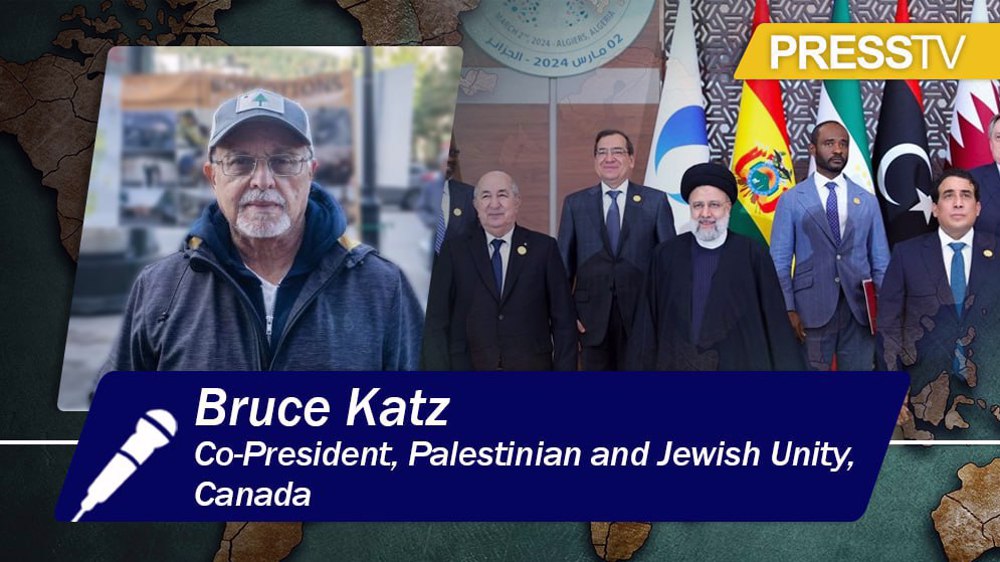

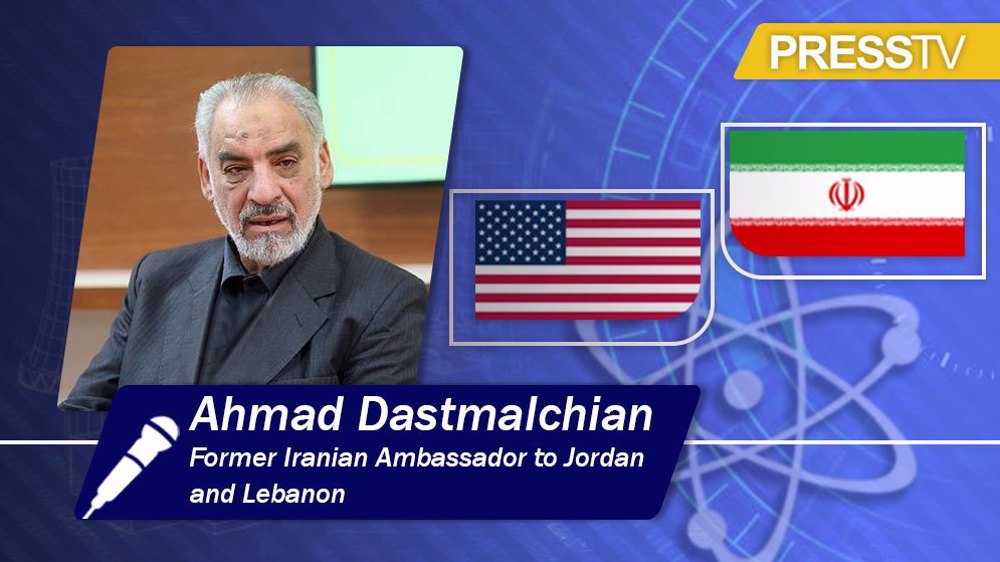
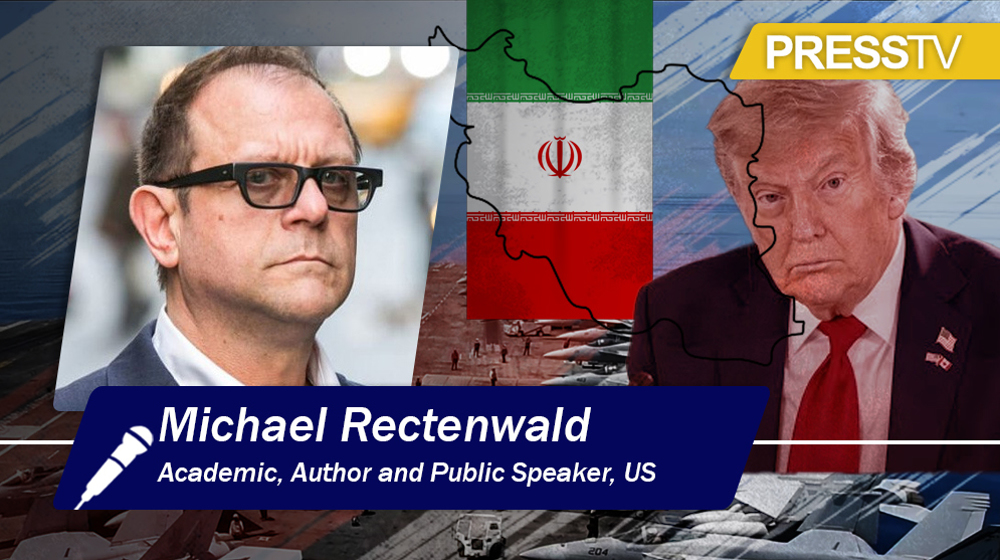



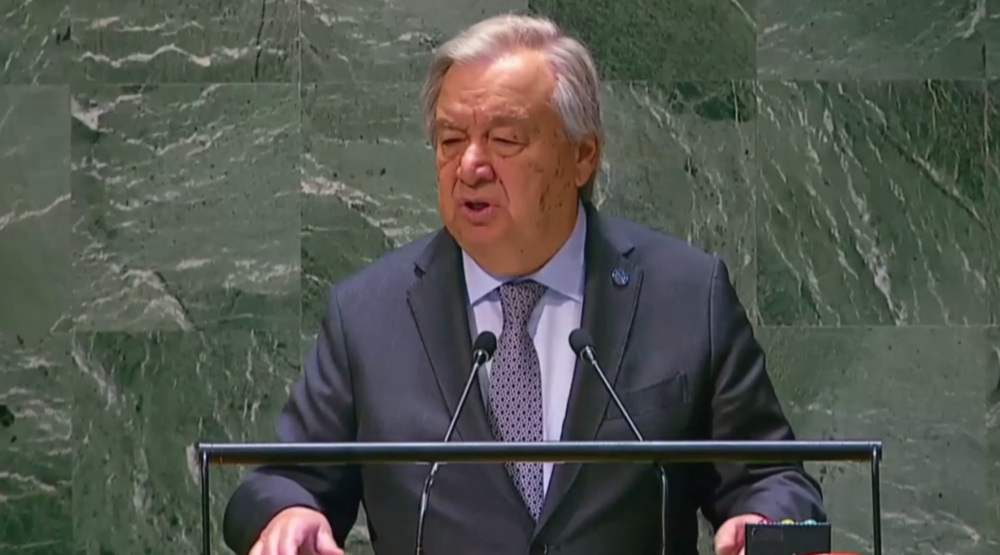
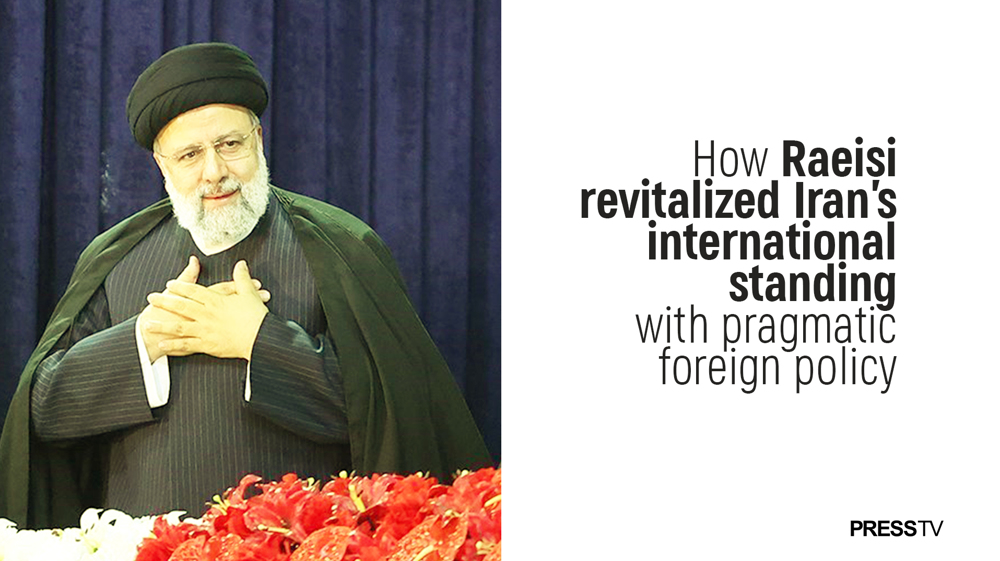
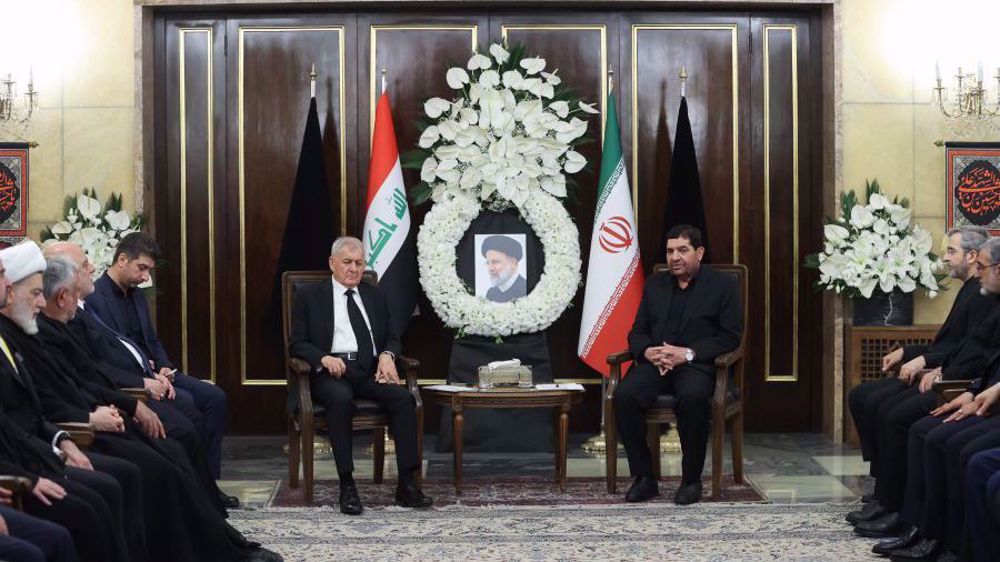
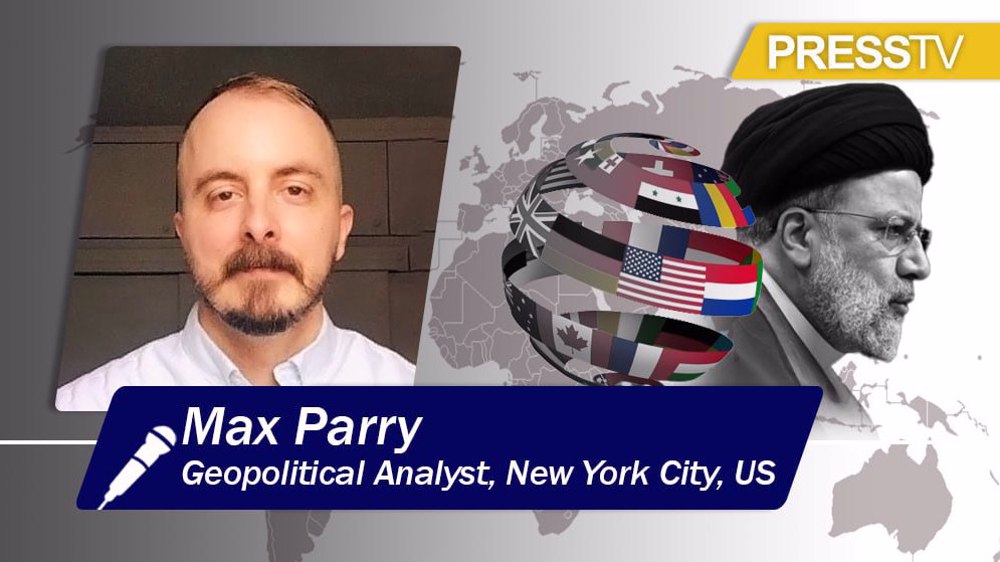
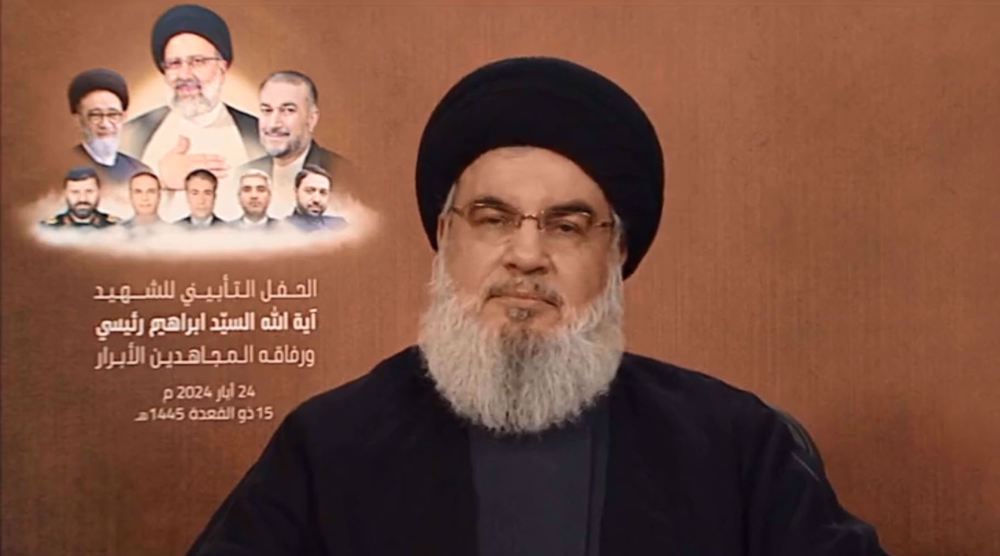

 This makes it easy to access the Press TV website
This makes it easy to access the Press TV website